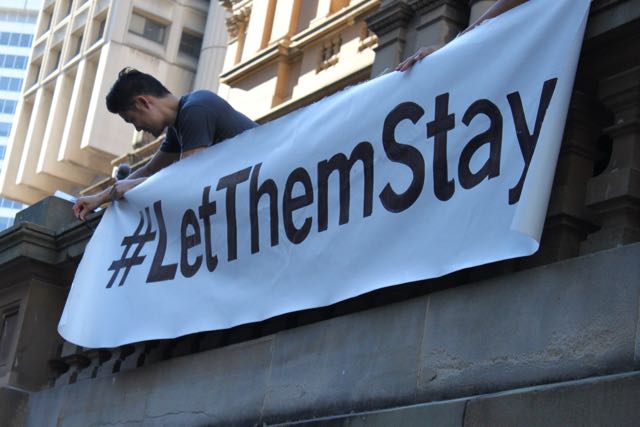Cyclone Winston – Fiji Update
Update: 8.30am Monday 22 Feb
Message just received from Rev Dr Cliff Bird in our Fiji Office:
Power supply has just come back on in parts of Suva, so able to send this brief email update on the aftermath of TC Winston.
The curfew is still effective and will be lifted at 5.30 a.m. tomorrow, Monday.
The very sketchy information received so far indicates that destruction has been widespread and very bad. The Lau group of islands, Koro Island, villages on Vanua Levu and their township Savusavu have been hit very badly. One village on Koro Island lost all homes. On Viti Levu, Rakiraki, Ba, Nadi, Lautoka, Sigatoka, and villages along Korovou and Tailevu were hit badly. Hundreds of homes have been lost, infrastructure damaged, farms and gardens destroyed, etc. Water and power supply to many areas are still down. Suva was not too badly hit comparatively speaking. So far 5 cyclone-related deaths have been confirmed.

Photo source ABC News
Minister for Education has given directive that all schools will remain closed for the entire week. Many schools have sustained damages. The USP and Fiji National University will remain closed tomorrow and may resume on Tuesday.
The President of the Methodist Church asked all congregations to stay home Sunday in light of the cyclone and curfew. The church office will not open today and will resume on Tuesday.
The General Secretary of the Methodist Church sent instructions to all divisional superintendents and their ministers to make available church halls as evacuation centres if necessary. He has also requested that they begin to do some initial assessment of damages and let the office know.
Will let you know more details when information come to hand. Thank you for your prayers, and continue to keep in your thoughts the thousands who have been badly affected in one way or other.
Update: 9.15am Sunday 21 Feb
We are slowly hearing back from our team members and church partners today. There are some very sad reports about villages, homes and livelihoods destroyed. One staff member texted just now: I am good. It was so bad last night. It is still blackout since last night. The curfew is still on. All shops are still closed, just found a canteen on another street to buy top up cards and water 5mins ago. We’ll see how today progresses. Trees have fallen so some people are cleaning up”. Thoughts and prayers with the people of Fiji.
You can read more here: www.abc.net.au/news/2016-02-21/tropical-cyclone-winson-leaves-trail-of-destruction-across-fiji/7187104
Update 12.25 pm 20 Feb: Our National Director Rob Floyd has now spoken with friend and church partner Rev Tevita Bainivanua, President of the Methodist Church in Fiji. He let him know the Australian church community were praying for them – and offered future support, should they need it.
Previous updates:
Please keep our church partners in the Pacific, our staff in the Fiji Office and the people of Fiji in your prayers as they brace for Cyclone Winston.
ABC News reports that a powerful category-five cyclone is lashing Fiji’s outer islands with hurricane-force winds of up to 220 kilometres per hour.
Severe Tropical Cyclone Winston is heading westward and has already hit areas in the Lau group of islands as it tracks towards more populated areas.
The cyclone was about 320 kilometres east-north-east of Suva, the capital, at 5:00am (local time), travelling at 25 kilometres per hour.
The storm was carrying average winds of 220 kilometres per hour, with gusts of up to 315 kilometres per hour, Fiji’s Meteorological Service said.
Forecasters say there’s a chance the cyclone will whip up very strong wind gusts around the capital.
You can read the full article below.
National Director Rob Floyd was in touch with our Methodist Church of Fiji partner Rev James Bhagwan yesterday, and UnitingWorld staff member Rev Dr Cliff Bird at 10am this morning. Cliff reports that strong winds are hitting Suva right now, and people are prepared and in shelters with water and food supplies.
Please keep them in your prayers.
http://www.abc.net.au/news/2016-02-20/category-five-cyclone-winston-bears-down-on-fiji/7186080



 “Let Them Stay” is such an act. It turns “when do you go home?” into “do you want to stay?” The three-word phrase is a defence for powerless people. It calls people into action to surround these people with love. As Jesus put it; “I desired to gather your children together as a hen gathers her brood under her wings”.
“Let Them Stay” is such an act. It turns “when do you go home?” into “do you want to stay?” The three-word phrase is a defence for powerless people. It calls people into action to surround these people with love. As Jesus put it; “I desired to gather your children together as a hen gathers her brood under her wings”.